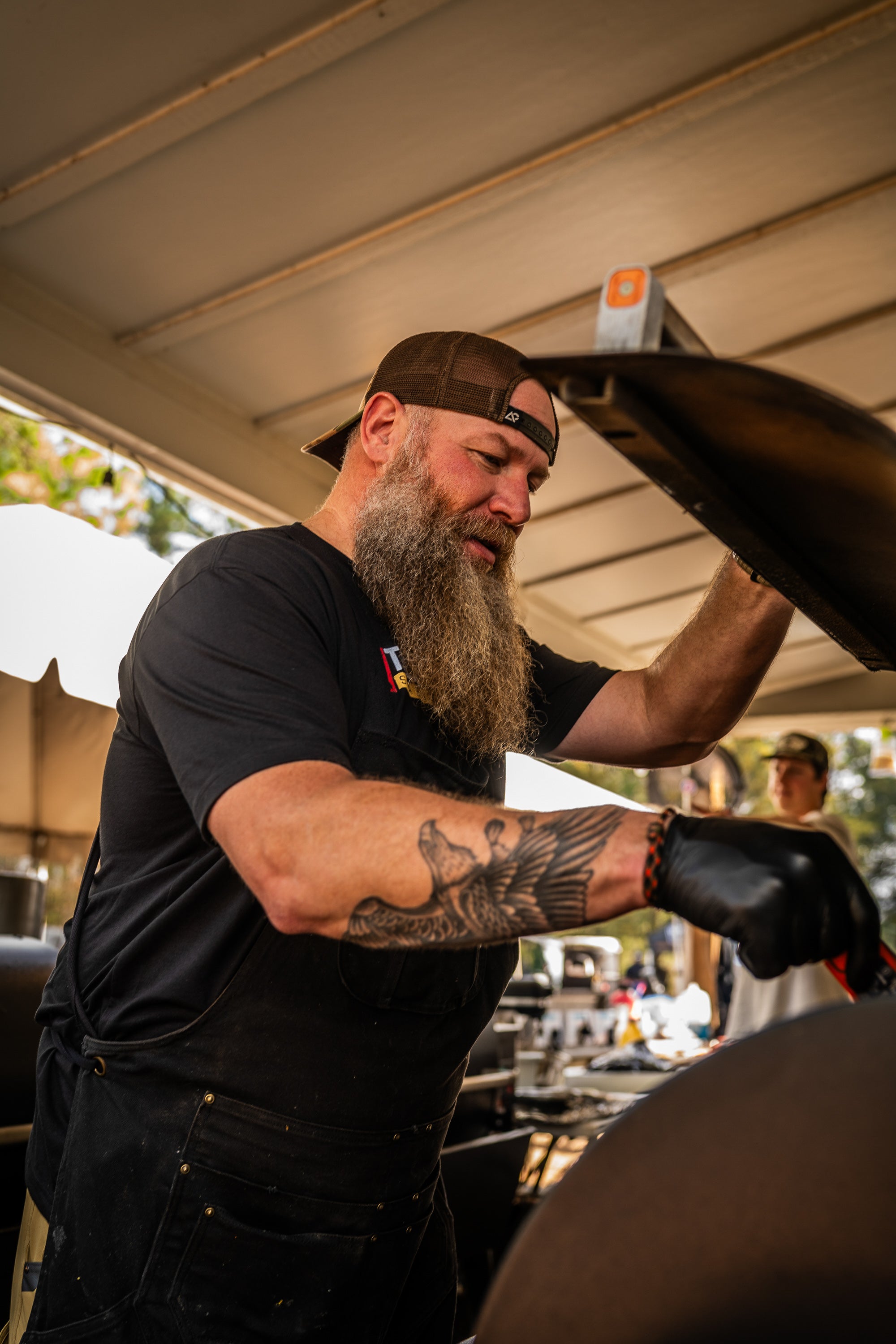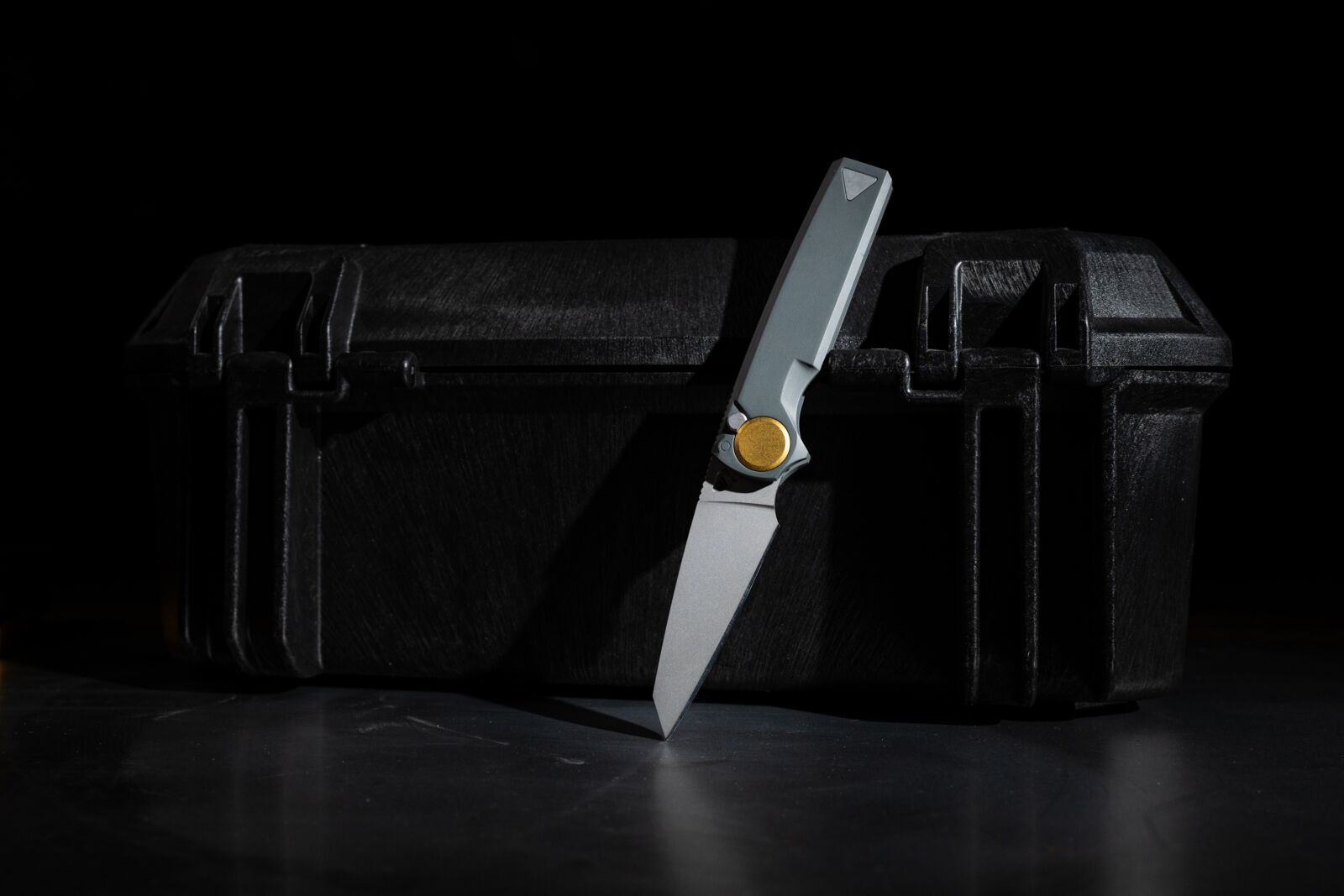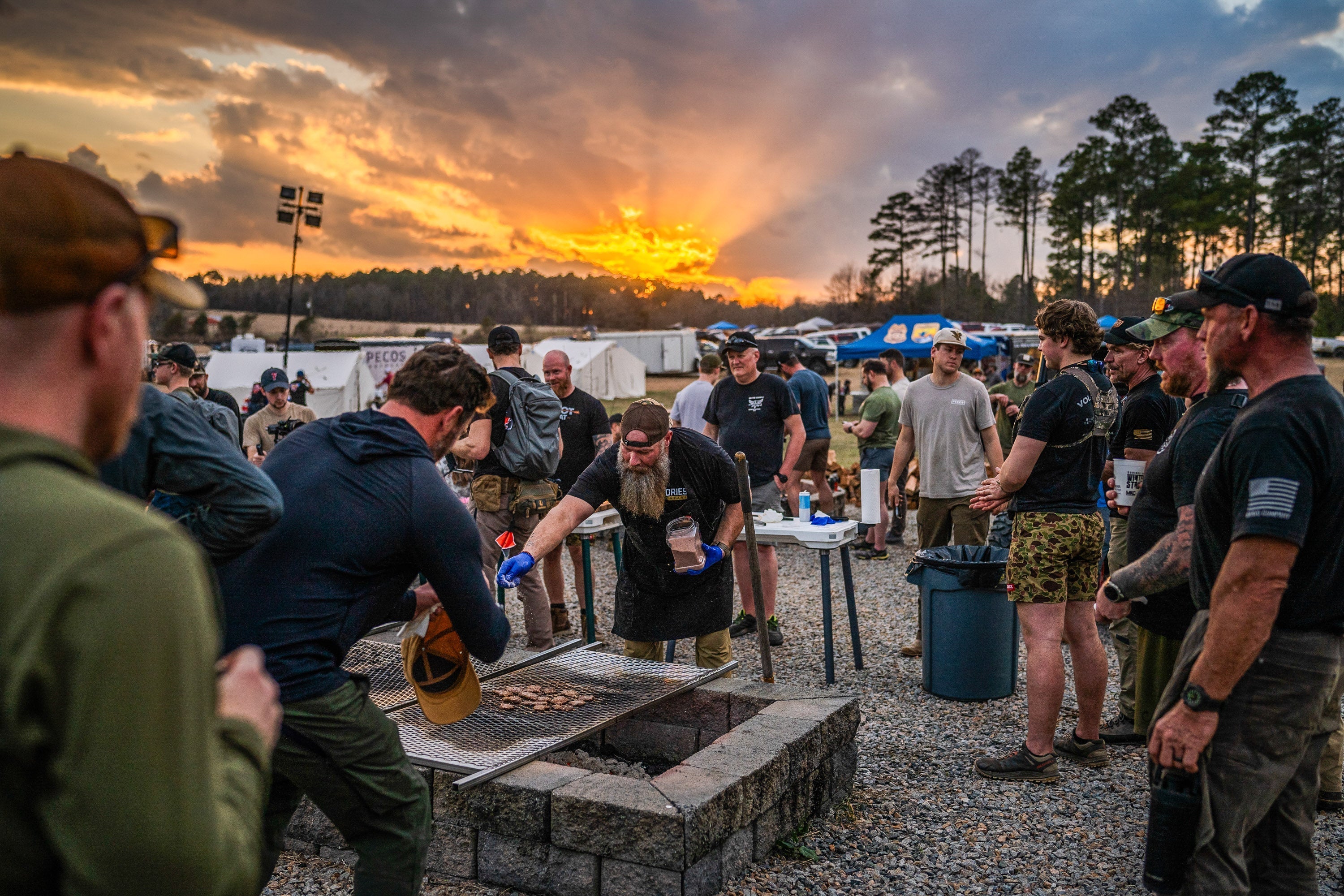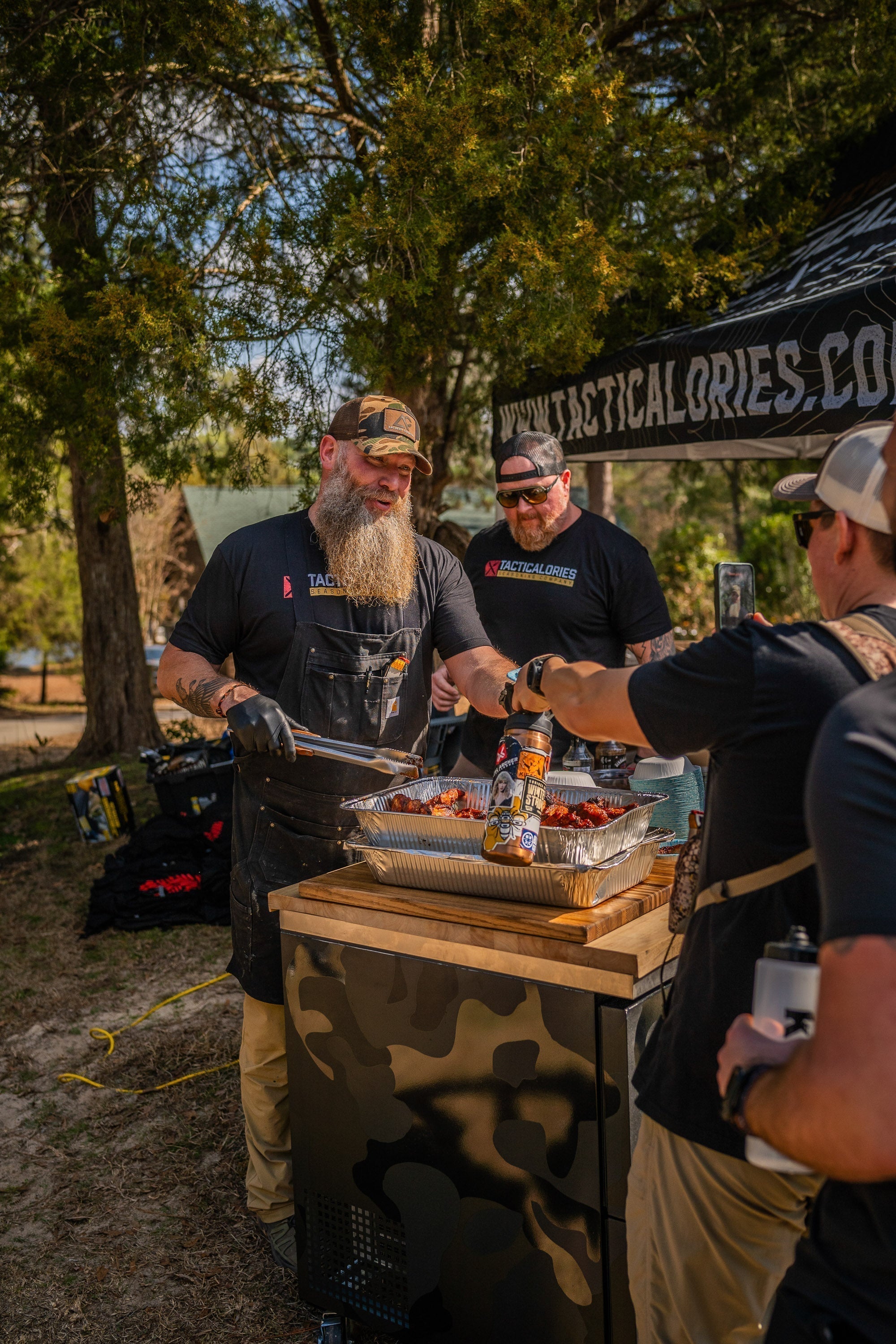Not much beats cooking over live fire—but a good way to ruin it fast is by throwing cheap, flavorless meat on top of great coals.
If you’re putting in the time to build a real fire, why the hell would you settle for subpar ingredients?
One of the easiest ways to elevate your summer cooking is to start giving a damn about where your meat comes from. Not all beef is created equal. Not all chicken is raised with care. When you taste the difference, it’s hard to go back.
I’ve cooked in a lot of backyards, ranches, and camps. I’ve cooked wild elk I hauled out myself, and I’ve cooked shrink-wrapped mystery meat from a gas station cooler. The difference is night and day. Good meat holds its own over flame. It doesn’t need a ton of seasoning, it doesn’t dry out, and it brings natural flavor to the fire. It does the work for you—if you treat it right. Just don’t overcook it!!
Your best move? Get to know your local butcher.
This might sound old-school, but it’s one of the most overlooked ways to instantly upgrade your cookouts. That guy or gal behind the counter isn’t just there to wrap your steaks—they’re a source of knowledge. Ask questions. Tell them what you’re cooking over. They’ll hook you up with cuts most folks don’t even think to ask for.
Want to stretch your budget and still eat well? Butchers can help there too. Instead of grabbing the usual ribeye, ask for picanha, bavette, or flat iron. These are killer cuts with serious flavor that cost less and cook beautifully over live fire.
Want to earn some next-level respect? Ask about buying a primal cut and breaking it down yourself. Learn where the steaks really come from. The connection you build with that meat—understanding its structure, grain, and fat—makes you a better cook, period.
 Beyond the butcher shop, dig into your local food scene.
Beyond the butcher shop, dig into your local food scene.
Look for farmers markets, small-scale ranchers, and co-ops that sell meat raised right—on pasture, with real feed, without the garbage. When you buy meat from someone who’s actually raised the animal, you’re buying a story. You’re buying respect for the process. That shows up on the plate.
And let’s be real—it’s not just about taste. It’s about doing things the right way.
When you support local farms or responsible ranches, you’re choosing meat that was raised with care, slaughtered humanely, and sold with intention. You’re not just feeding yourself—you’re supporting a better food system, one steak at a time.
And if you’re hunting? You’re already ahead of the game.
Wild game—deer, elk, hog—is as real as it gets. You earned that meat. You know where it came from, how it lived, how it died. There’s pride in that. And cooking that meat over open fire? That’s the full-circle moment right there.
That said, wild game’s leaner, trickier to cook, and less forgiving. You’ve got to pay attention. You’ve got to know how to work the coals, when to use cast iron, and when to go low and slow. But the payoff? Deep flavor and deep satisfaction. It hits different.
 Bottom line: respect what you’re cooking.
Bottom line: respect what you’re cooking.
Whether it’s a $60 tomahawk from a craft butcher or a pack of local sausages from a weekend market, don’t treat meat like a side note. Don’t just “grab something” on the way to the grill. Choose it like it matters—because it does.
Real fire deserves real food. And the people you feed deserve better than mass-produced meat pumped full of junk.
When you build your fire, season your steel, and lay that cut down over the flame, you’re doing something older than recipes. Something honest. Something that demands quality.
Respect the flame.
Respect the food.
Respect the hands that raised it—and the ones who sit at your table.
Because meat matters. And when you treat it right, it rewards you every damn time.







